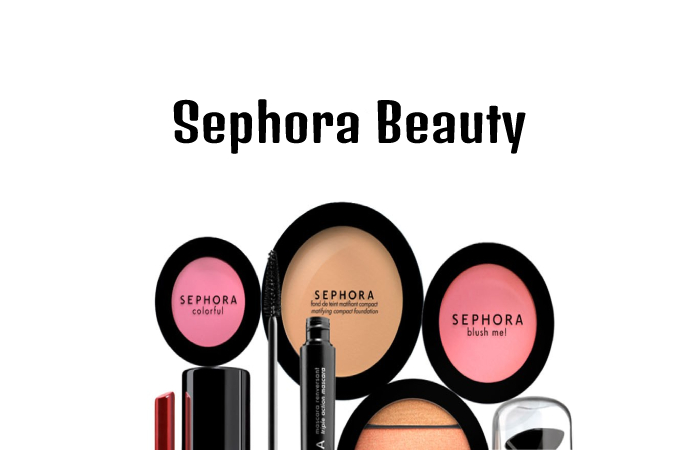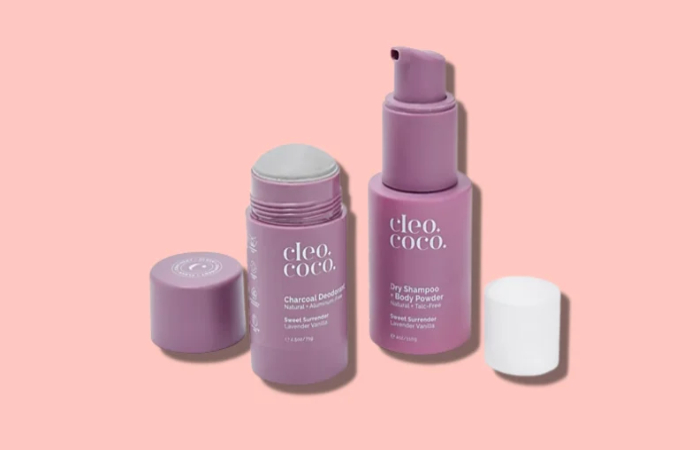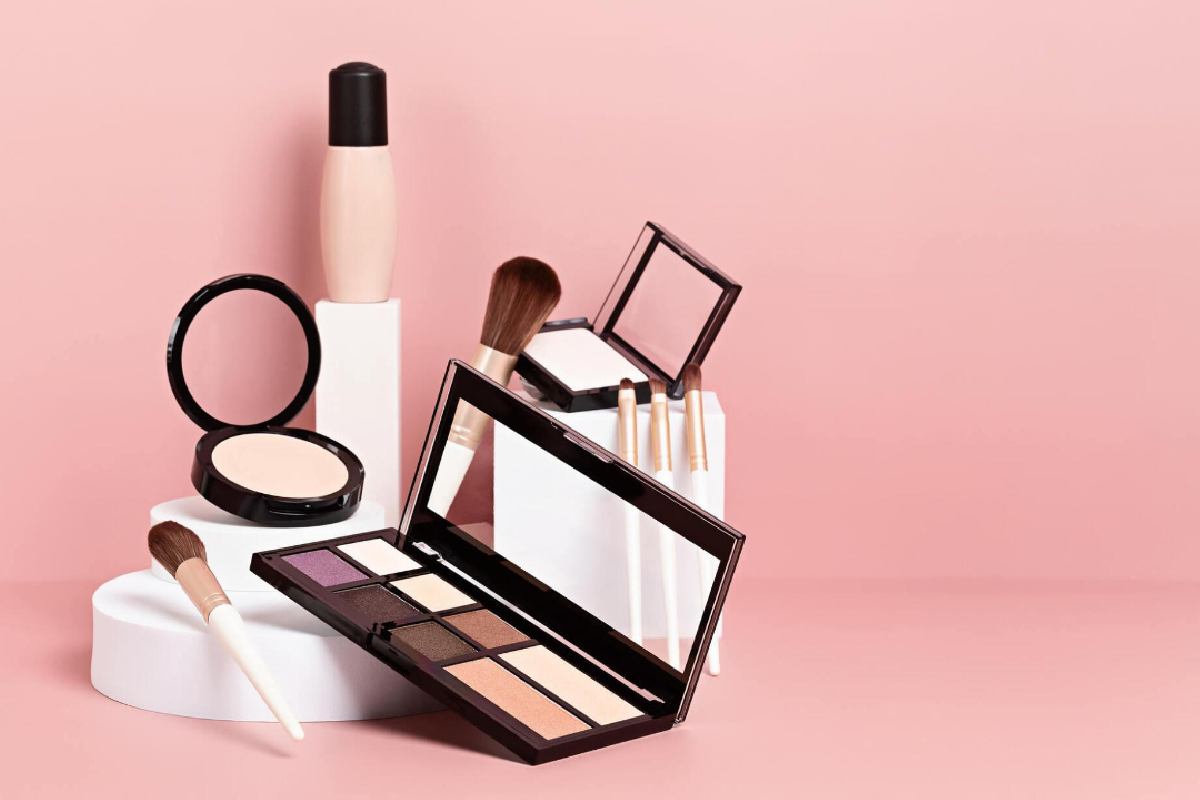Table of Contents
Introduction
Sustainable Beauty Products Sephora: On the occasion of this year’s Beacon Awards, we took a closer look at the “Sustainability Champion” category. We presented six brands that set the tone for sustainability.
Sustainability has become one of the essential requirements for the beauty industry, and brands today can hardly afford not to think and act sustainably. From the environmentally friendly use of resources and fair working conditions to innovative packaging materials – these brands show what sustainability should look like in the beauty industry in 2020.
Sephora Beauty

Many promises “clean makeup without compromises,” – but only very few brands can convince with this. Sephora Beauty is one of those brands that deliver this added value. Founder Tiila Abbitt worked at Sephora for seven years, the last two as senior director of product development. She knows exactly what consumers expect from clean makeup and why many brands fail.
Searching for the same effectiveness in green cosmetics as traditional formulations can deliver, Tiila Abbitt has been disappointed repeatedly – especially in my eyeshadow palettes. “I think there is universal tiredness with palettes, but not for those who care about clean beauty because there are few options in this segment. Boredom reigns supreme, and I wanted to bring playfulness into that category.”
She then launched Sephora Beauty’s first product in 2018: the Rose Quartz Crystal Gemstone Palette with 12 eyeshadow colors that can be used for both day and evening. The textures range from ultra-matt to metallic-shimmering. The formulations contain rose quartz gemstone powder for the light reflections and its skin-enhancing properties, organic rosehip oil for the glow, and organic coconut oil and shea butter for a soft texture.
FSC-certified paper and soy ink are used for the packaging. The founder left out mirrors and magnets entirely. As a result, the so-called “pans” in which the pressed eyeshadow powder sits can be easily removed, and the entire packaging can be recycled. “The brand slogan is ‘Supercharged Sustainable Beauty,’ and it’s a sustainable company with sustainable packaging and formulations. I will not make any decisions that are not right for customers and the earth.” Tiila Abbitt has since expanded the range with palettes for both the eye area and the cheeks.
Alpine Beauty
The weather significantly influences our skin’s condition – whether it’s freezing cold or extreme heat. Kendra Kolb Butler quickly found this out when she moved from New York to Jackson in Wyoming for a job. Kendra Kolb Butler, who had a long and successful career in beauty PR, wanted to create skincare to protect against such external influences.
She founded Alpine Beauty and opened the Alpine Beauty Bar in Jackson five years ago. The entrepreneur found the ingredients for her care products practically before her nose: “My whole concept is based on using local plants. They find a way to survive the climate conditions our skin is exposed to. They are close to the sun, but they also have to withstand the cold.”
Kendra Kolb Butler uses the strength of this botany growing in the Rocky Mountains in her products. She provides her regional customers – and of course, far beyond – skincare resistance to all environmental influences. Arnica and chamomile are collected from the wild, while borage, sage, and calendula are cultivated in the surrounding mountains. The wild collection is essential because the plants are picked at their optimal time in their natural environment. The plants remain intact, and the harvest is 100% sustainable.
“I believe this process will become even more mainstream due to its sustainable aspect. I’m amazed that more people don’t do this.” The fact that the concept works is also shown by the retailers who believe in Alpyn Beauty: the products are available from Credo, Goop, and Sephora, among others.
Axiology
Ecological, animal-friendly, and “evil-free” are the cornerstones of brand axiology by founder Ericka Rodriguez. The brand for vegan lipsticks without harmful ingredients stands for extreme transparency on all levels. Axiology is one of the few zero-waste beauty brands: the balm is wrapped in recyclable paper and packed in small boxes produced in Bali from recycled waste. The tubes of the lipsticks are made from recycled plastic goods that have completed their life cycle as consumer goods.
“We are a planet-first beauty company, so our main inspiration was to create a zero waste and reusable pen that addresses the urgent need for sustainability in our industry. In addition, we want to make Clean Beauty accessible to more people.”
The products can be used for the lips, eyes, and cheeks. Ericka Rodriguez does not use palm oil; instead, hemp and plum seed oil or kokum butter are used. They are, therefore, rich, velvety, nourishing, and yet intensely colored.
Ericka Rodriguez has been an animal rights activist since she was 14. At Axiology, she must inform and enlighten consumers beyond the product. For example, the brand’s blog has articles about the importance of Intersectional Environmentalism and why squalane is so controversial.
Cleo + Coco

In 2017, Suzannah founded Raff Cleo + Coco, a brand for natural deodorants and, at the same time, one of the first to use activated carbon in formulations. In addition, the deodorants contain coconut oil, shea butter, and bentonite clay.
When Suzannah Raff started, Cleo + Coco products still came in paper packaging. But the consumers complained about the handling. She switched to BPA-free plastic containers and also changed the brand’s look. But even that didn’t seem to affect retailers and customers. Earlier this year, she teamed up with a creative agency to overhaul the entire design, a minimalist, modern design that looks more like a luxury than eco.
“I want to be above a typical green product,” says the founder. That’s why “aluminum-free” isn’t enough for her as a USP. “We have to teach customers that it’s about the quality of the ingredients,” she says. In addition to the deodorants, Cleo + Coco also offers a dry shampoo that can be used as a body powder in addition to the deodorants. The label recently launched a solid zero-waste deodorant in an organic cotton bag. The lower part of the deodorant is wrapped in a biodegradable wax that keeps hands clean.
Loli
Why do we add water to our products when consumers can do it themselves? That’s the question Tina Hedges, founder of, asked herself lol. She developed her brand into a zero waste, fair trade, organic and ethical food-grade skincare brand through a meticulously thought-out process. The abbreviation Loli stands for “Living Organic Loving Ingredients”; the products are water-free.
Tina Hedges thinks twice about every step she takes until she is delighted with the result. Her products have multiple uses; she calls them “the white t-shirt of the skincare routine.” The Plum Elixir, for example, can be used for the face, hair, décolleté, and lips.
The masks come as a powder in reusable, refillable, and shatterproof yogurt glass containers that customers can mix at home. These scrubs can be prepared with water, aloe vera, juices, yogurt, or vinegar. The entrepreneur gets the ingredients from the food industry’s waste and skillfully integrates the principle of upcycling.
Codex Beauty
Another brand in the beauty industry that sees sustainability as an essential basis is Codex Beauty. The label is practically regarded as a sustainability frontier in the cosmetics industry. It starts with the fixings: the raw materials are harvested in an environmentally friendly and gentle way with the help of a wild collection. The formulations are created using the latest scientific knowledge and are clinically tested. The tubes of the products are made of carbon-reducing polyethylene made from renewable sugar cane. All packaging is PEFC certified and fully recyclable.
The company controls the whole supply chain and ensures that work is done ethically and qualitatively at every level. Codex Beauty also developed a completely new, patented food-grade preservation system without synthetic chemicals, i.e., a purely plant-based preservation method. Founder Barbara Paldus created Codex Beauty into the flagship of a technologically advanced, super-sustainable clean beauty brand.
Conclusion
Sephora has gained the emotions of millions of beauty shoppers and is violently expanding worldwide. We dive into Sephora’s achievement in today’s cutthroat retail weather and highpoint critical lessons for vendors. Imagine walking into a makeups store with makeup shelves, perfume shelves, and aisles with all kinds of loveliness products imaginable, but you can’t touch anything.
Thanks to Sephora, beauty shoppers no longer have to deal with this scenario. Founded in 1970 by Frenchman Dominique Mandonnaud, Sephora pioneered the “try-before-you-buy” concept for cosmetics that’s rife in beauty retail. And at a time when shops were stressed with nearly 7,000 ends in the US in 2017, Sephora is flourishing. Concerning beauty product sales, Sephora is the world’s foremost specialty vendor of beauty products.

